
Cărți de Hannah Arendt

Hannah Arendt (, US also , German: [ˈaːʁənt]; 14 October 1906 – 4 December 1975) was a political philosopher, author, and Holocaust survivor. Her contributions influenced 20th and 21st century political theorists.
Arendt was born in Linden, a district of Hanover, in 1906, to a Jewish family. At the age of three, her family moved to Königsberg, the capital of East Prussia, so that her father's syphilis could be treated. Paul Arendt had contracted the disease in his youth, and it was thought to be in remission when Arendt was born. He died when she was seven. Arendt was raised in a politically progressive, secular family. Her mother was an ardent supporter of the Social Democrats. After completing her secondary education in Berlin, she studied at the University of Marburg under Martin Heidegger, with whom she had a brief affair. She obtained her doctorate in philosophy writing on Love and Saint Augustine at the University of Heidelberg in 1929 under the direction of the existentialist philosopher Karl Jaspers.
Hannah Arendt married Günther Stern in 1929, but soon began to encounter increasing anti-Jewish discrimination in 1930s Nazi Germany. In 1933, the year Adolf Hitler came to power, Arendt was arrested and briefly imprisoned by the Gestapo for performing illegal research into antisemitism in Nazi Germany. On release, she fled Germany, living in Czechoslovakia and Switzerland before settling in Paris. There she worked for Youth Aliyah, assisting young Jews to emigrate to the British Mandate of Palestine. Divorcing Stern in 1937, she married Heinrich Blücher in 1940, but when Germany invaded France in 1940 she was detained by the French as an alien, despite having been stripped of her German citizenship in 1937. She escaped and made her way to the United States in 1941 via Portugal. She settled in New York, which remained her principal residence for the rest of her life. She became a writer and editor and worked for the Jewish Cultural Reconstruction, becoming an American citizen in 1950. With the publication of The Origins of Totalitarianism in 1951, her reputation as a thinker and writer was established and a series of works followed. These included the books The Human Condition in 1958, as well as Eichmann in Jerusalem and On Revolution in 1963. She taught at many American universities, while declining tenure-track appointments. She died suddenly of a heart attack in 1975, at the age of 69, leaving her last work, The Life of the Mind, unfinished.
Her works cover a broad range of topics, but she is best known for those dealing with the nature of power and evil, as well as politics, direct democracy, authority, and totalitarianism. In the popular mind she is best remembered for the controversy surrounding the trial of Adolf Eichmann, her attempt to explain how ordinary people become actors in totalitarian systems, which was considered by some an apologia, and for the phrase "the banality of evil". She is commemorated by institutions and journals devoted to her thinking, the Hannah Arendt Prize for political thinking, and on stamps, street names and schools, amongst other things.


The Origins of Totalitarianism

Eichmann in Jerusalem
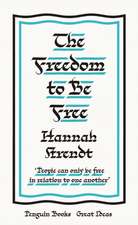
The Freedom to Be Free
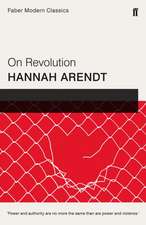
On Revolution
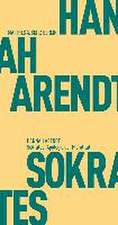
Sokrates. Apologie der Pluralität

Wahrheit und Lüge in der Politik

Hannah Arendt

Über das Böse
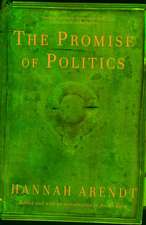
The Promise of Politics

Between Past and Future: Eight Exercises in Political Thought
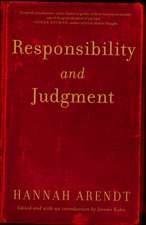
Responsibility and Judgment

Eichmann and the Holocaust
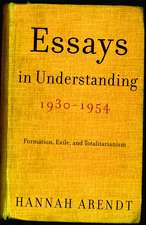
Essays in Understanding, 1930-1954

The Portable Hannah Arendt

The Warriors: Reflections on Men in Battle
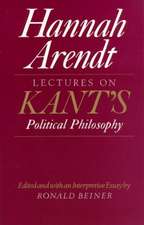
Lectures on Kant's Political Philosophy

The Life Of The Mind
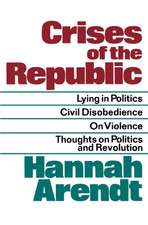
Crises Of The Republic: Lying in Politics; Civil Disobedience; On Violence; Thoughts on Politics and Revolution

Men in Dark Times
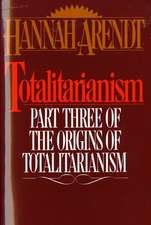
Totalitarianism: Part Three of The Origins of Totalitarianism
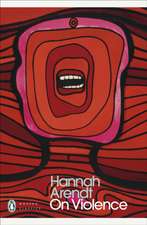
On Violence

On Civil Disobedience
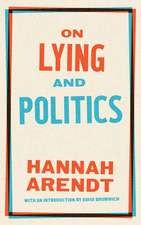
On Lying and Politics: A Library of America Special Publication

Rahel Varnhagen

In der Gegenwart

Zwischen Vergangenheit und Zukunft

Das Urteilen
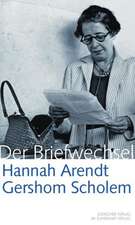
Hannah Arendt / Gershom Scholem Der Briefwechsel

The Jewish Writings
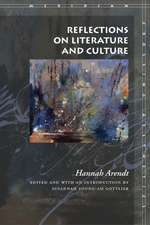
Reflections on Literature and Culture

Denken ohne Geländer

Von Wahrheit und Politik. 5 CDs

Vom Leben des Geistes

Was ist Politik?
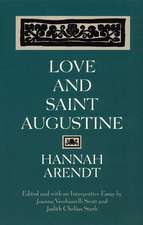
Love and Saint Augustine
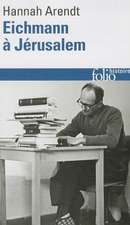
Eichmann a Jerusalem
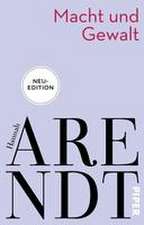
Macht und Gewalt
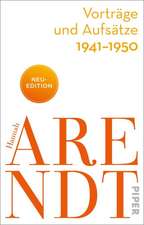
Vorträge und Aufsätze 1941-1950

Plough Quarterly No. 40 - The Good of Tech
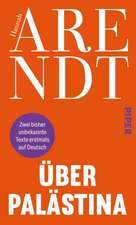
Über Palästina
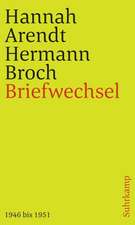
Briefwechsel
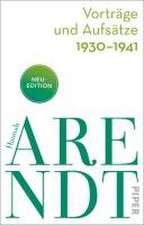
Vorträge und Aufsätze 1930-1938

The Origins of Totalitarianism

Comprendre Hannah Arendt (analyse complète de sa pensée)

What Remains – The Collected Poems of Hannah Arendt

Eichmann in Jerusalem
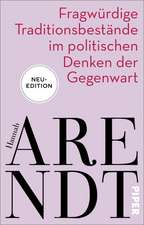
Fragwürdige Traditionsbestände im politischen Denken der Gegenwart
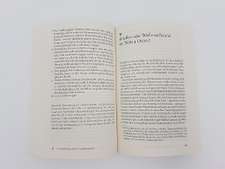
Wir Juden
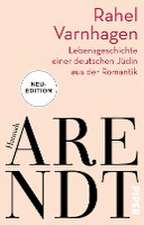
Rahel Varnhagen
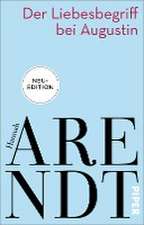
Der Liebesbegriff bei Augustin
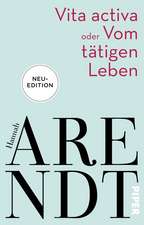
Vita activa oder Vom tätigen Leben
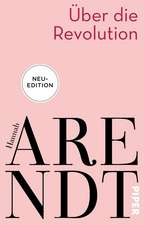
Über die Revolution
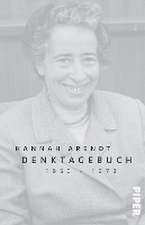
Denktagebuch
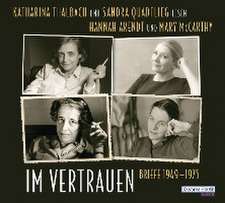
Im Vertrauen

Wie ich einmal ohne Dich leben soll, mag ich mir nicht vorstellen
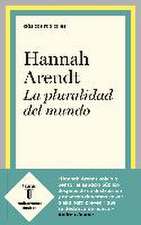
La pluralidad del mundo

«Ich bin Dir halt ein bißchen zu revolutionär»

Vor Antisemitismus ist man nur noch auf dem Monde sicher
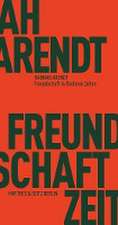
Freundschaft in finsteren Zeiten

Was heißt persönliche Verantwortung in einer Diktatur?
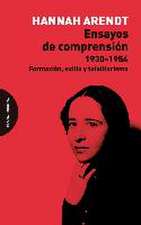
Ensayos de comprensión, 1930-1954 : formación, exilio y totalitarismo
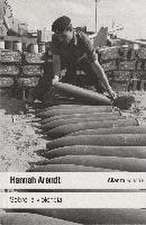
Sobre la violencia

Schreib doch mal ,hard facts' über dich

Tradición y política : correspondencia (1939-1964)

Die Freiheit, frei zu sein

The Correspondence of Hannah Arendt and Gershom Scholem
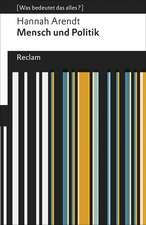
Mensch und Politik
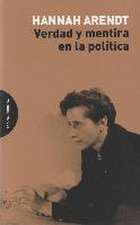
Verdad y mentira en la política
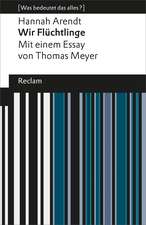
Wir Flüchtlinge

Ich selbst, auch ich tanze

Disput Uber Den Totalitarismus: Texte Und Briefe

Wahrheit gibt es nur zu zweien

Eichmann war von empörender Dummheit
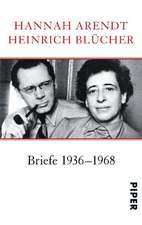
Briefe 1936 - 1968
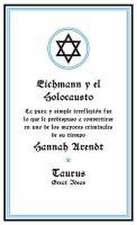
Eichmann y el Holocausto
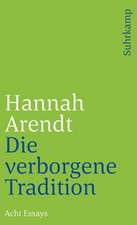
Die verborgene Tradition

Lenguaje y ficción en las novelas de Beckett
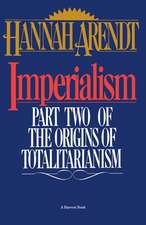
Imperialism: Part Two Of The Origins Of Totalitarianism
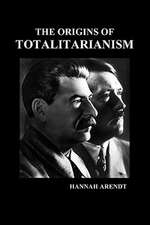
The Origins of Totalitarianism (Pbk)
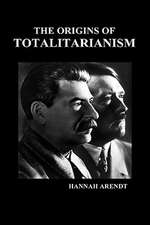
The Origins of Totalitarianism (Hbk)
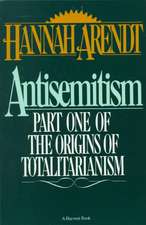
Antisemitism: Part One of The Origins of Totalitarianism

Per un'etica della responsabilità. Lezioni di teoria politica

Rahel Varnhagen. Storia di un'ebrea

Marx e la tradizione del pensiero politico occidentale

Eichmann En Jerusalén / Eichmann in Jerusalem: A Report on the Banality of Evil
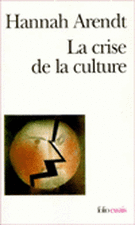
Crise de La Culture

Essays und Kommentare 1. Nach Auschwitz

Menschen in finsteren Zeiten

Ich will verstehen

"Kein Mensch hat das Recht zu gehorchen"

Vorträge und Aufsätze 1951-1960
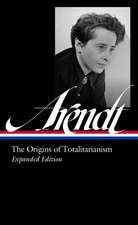
Hannah Arendt: The Origins of Totalitarianism Expanded Edition (Loa #389)

Die weisen Tiere
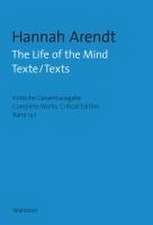
The Life of the Mind

Elemente und Ursprünge totaler Herrschaft
- 1
- 2